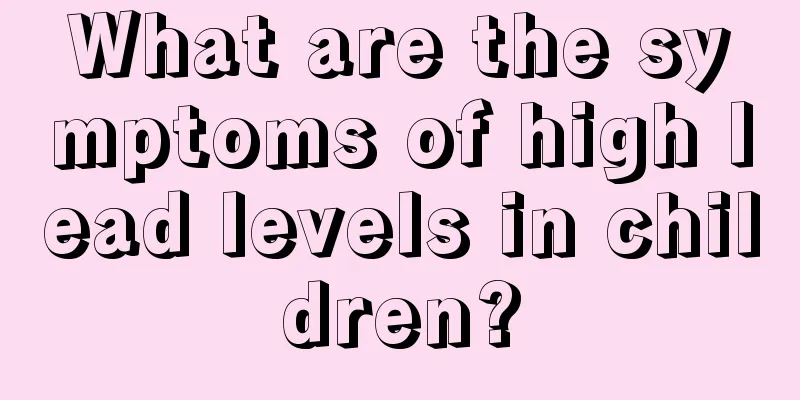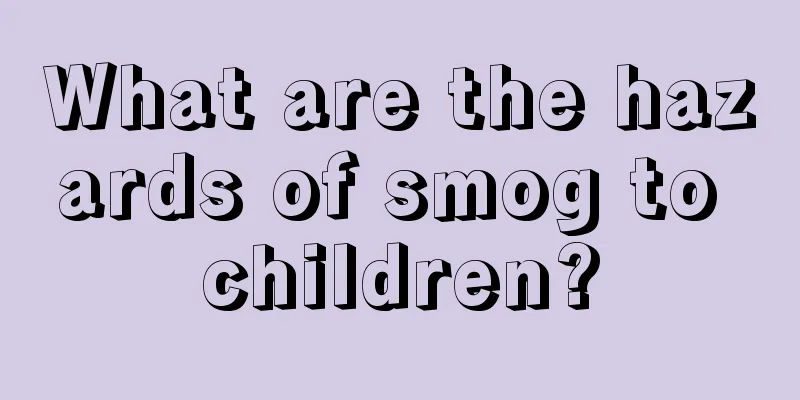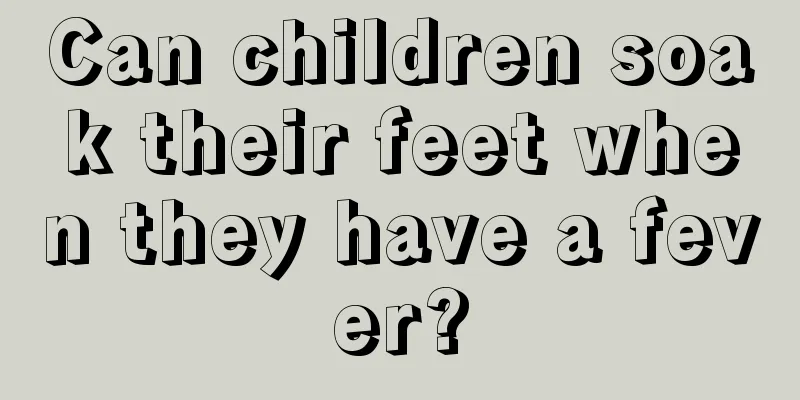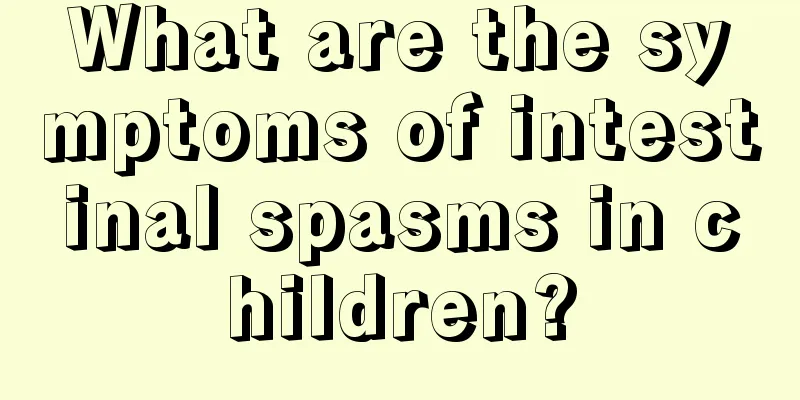What are the symptoms of high lead levels in children?

|
If the lead content in children's bodies exceeds the standard, it will not only threaten their physical health, but also affect their intelligence. Because lead is a chemical element, if the lead content in the body is very high, palpitations and frequent excitement will occur, and the nervous system will be seriously damaged. The cancer rate is also very high, so parents must pay attention to it. So what are the symptoms of high lead in children? First, what are the symptoms of high lead levels in children? Nervous system: irritability, hyperactivity, short attention span, aggressive behavior, slow reaction, drowsiness, movement disorders. Severe cases may include mania, delirium (a temporary neurological disorder characterized by confusion, bewilderment, incoherent speech, restlessness, agitation, and often delusions or hallucinations), visual impairment, and cranial nerve paralysis. When the blood lead level is around 1000 ug/L (4.826umol/L), symptoms of lead encephalopathy such as headache, vomiting, convulsions, coma, and even death may occur. Digestive system: abdominal pain, constipation, diarrhea, nausea, vomiting, etc. Second, the metabolic half-life of lead in the human body is 1460 days. The long-term accumulation of lead that enters the human body every day can cause chronic lead poisoning. People will experience symptoms of neurasthenia such as fatigue, lack of energy, inattention, headache, dizziness, insomnia, and dreaminess, as well as mental or emotional changes such as mild excitement, irritability, anxiety, and hysterical attacks. There may also be gastrointestinal symptoms, such as loss of appetite, nausea, abdominal discomfort, etc. In addition, men may have decreased libido and impotence, and women may have menstrual disorders. It can also cause cardiovascular and cerebrovascular diseases and chronic respiratory diseases in middle-aged and elderly people. Medical experts point out that the lead ingested by children is not mainly accumulated in the bones like that of adults, but enters the body tissues. Therefore, excessive lead is more harmful to children. Because children's blood-brain barrier is not yet fully developed, lead can more easily pass through the blood-brain barrier and cause permanent damage to brain development. What are the symptoms of high lead levels in children? Blood system: microcytic hypochromic anemia, etc. Cardiovascular system: hypertension and cardiac arrhythmias. Urinary system: aminoaciduria, glucosuria, and hyperphosphaturia in the early stage; in the late stage, patients may experience manifestations of renal failure such as azotemia. Subclinical lead poisoning mainly affects children's intellectual behavioral development and physical growth. Due to the lack of clinical manifestations sufficient to attract the attention of parents and pediatricians, it is often easily ignored. By the time it is discovered, the toxic effects of lead are difficult to reverse. Its hidden and progressive pathological characteristics make it more harmful to children's health. Therefore, it is the focus of research on childhood lead poisoning. |
<<: What are the symptoms of fright in children?
>>: What are the symptoms of internal fever in children?
Recommend
What are the sequelae of cerebral palsy?
What are the sequelae of cerebral palsy? Some dis...
What to do if your baby is lactose intolerant? Can you take it in small amounts and multiple times?
Baby lactose intolerance means that the baby is a...
How to change milk powder for newborns
It is not recommended to change milk powder for n...
At what age can a child be diagnosed with ADHD?
Children between the ages of two and three are ve...
How to cultivate children’s patience?
Children generally lack patience, but they must d...
How to educate babies aged one to three years old?
After the baby reaches a certain stage of growth,...
Newborn baby choked on amniotic fluid
Amniotic fluid is a very important substance. It ...
What to do if your child's eyes are flashing
Generally speaking, myopia is accompanied by a li...
Why does the child snore?
Many people think that children do not snore norm...
Why does a child have blisters on his tongue when he has a fever?
When a child has a fever, parents will become ver...
There is a hole on the back of the baby's head. What's going on?
As children grow up, parents will encounter vario...
What to do if your three-year-old child has knee pain
Children's bodies are relatively weak because...
How long do premature babies usually stay in the hospital?
If the child is a premature baby, he or she gener...
What causes numbness in children's hands and feet? What causes numbness in children's feet?
Numbness in the hands and feet is a very normal p...
What to do if something is stuck in your child's throat
Since children are not fully developed and have n...









